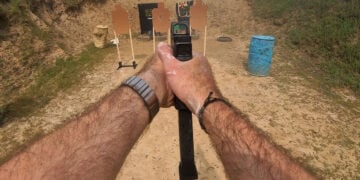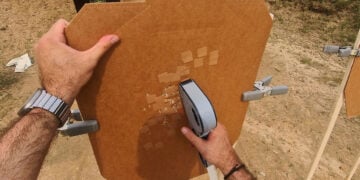The role of small businesses in the American economy cannot be overestimated. Per a mass of government research, small businesses lead the US economy in innovation, job growth, employment, and export production. I type these words with some measure of pride, as I’m a small business owner myself;indeed, my firm in part helps other businesses grow and develop to their full potential. So I know what goes into building your own business, and the many challenges and joys it brings.

But what about starting a firearms business?
Turns out I know a bit about that, too. Now, the normal rules apply: I’m neither a lawyer nor a firearms expert. I can, however, offer some thoughts to consider before taking the plunge into the world of guns-as-business:
What’s your niche?
This is key question for any business to answer, and to answer early. You (or you and your partners) need to identify where your business fits into the greater scheme and what your niche and target audience are. This drives everything else, from location to marketing to future expansion. Note that this niche may change as your business model evolves, and that’s OK. Just have a plan so you’re moving in the right direction from the start.
Do your homework.
Your first-grade teacher was right: the world belongs to those who do their homework. And for a business startup, there’s a lot to take into account. The cost of location, utilities, the startup capital needed for inventory, your business plan for growth, marketing, and funding. These need to be nailed down, and the math has to work out for your business to succeed. Firearms offer some additional complications, as there are additional tax, sales, licensing, and transport regulations. The Small Business Administration has a great starting point for that research, as does the ATF. Make sure to check them out.
Got Lawyer?
It’s an important part of this: you’ll want to talk to an attorney. I recommend this to most business startups, but I double-down on this advice for anything firearms related. There’s a whole host of legal issues around guns, and you’ll need to talk to a legal professional paid to act on your behalf.
Got Insurance?
Every workplace needs it. Make sure you’ve got an appropriate policy.
Get the word out!
The time to let the world know that your in business comes long before your doors open. Starting getting the word out at least six months before your projected launch date, and—if you’re running a storefront–give customers a reason to come by on opening day. The firearms world operates to a great degree on personal relationships and personal loyalty. Start developing both early. And toward that end . . .
Customer service, first and always.
One of the things that I love about the firearms world is how friendly and interconnected it is. Many folks are looking for that personal touch in a firearms business, and want to form a relationship. Make sure that your environment, atmosphere, and customer service facilitate that.
There’s so much more to say, but I’m out of column space for this go-around. This should help get you started, and I’m sure that the comments section will populate with further useful advice. If you own a firearms-related business or are considering starting one, I’ll be especially interested in hearing from you.
So let us all know how it goes. And until then, stay safe out there.









